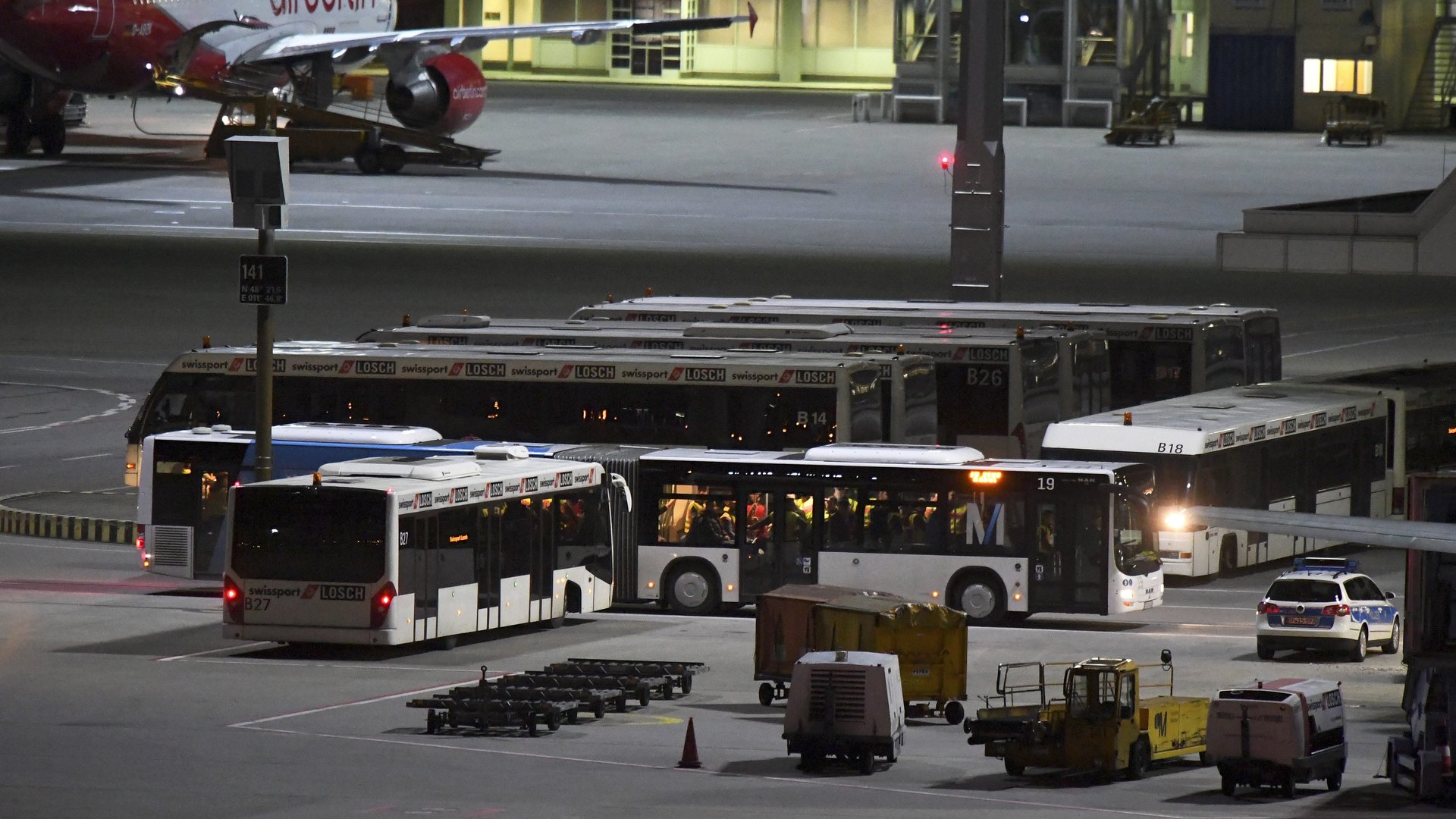Pilots across Germany have been refusing to deport rejected asylum seekers
Two years after German chancellor Angela Merkel opened up her nation’s doors to refugees, mostly Syrians coming in through the Balkan route, the far right appears to be rising in Germany, and Angela Merkel’s hold on the country seems to be slipping. But the country is not ready to turn its back on refugees just yet.


Two years after German chancellor Angela Merkel opened up her nation’s doors to refugees, mostly Syrians coming in through the Balkan route, the far right appears to be rising in Germany, and Angela Merkel’s hold on the country seems to be slipping. But the country is not ready to turn its back on refugees just yet.
Through 2017, German pilots refused to fly the planes to repatriate 222 Afghan asylum seekers rejected by Germany. Their refusal followed a controversial designation of Afghanistan as a “safe country of origin” (pdf), making asylum seekers lose their entitlement to be granted refuge outside the country. About 85 of the stopped flights were operated by Lufthansa or Eurowings. The majority of flights (140), Deutsche Welle reports, were to take off from Frankfurt, the country’s main airport, and 40 others from Dusseldorf, where the #WelcomeUnited campaign, a protest against deportation of asylum applicants, routinely stages protests.
The pilot protest creates further obstacles to the process of deportation in Germany, which is already rather fragmented. Because of its Nazi history, the federal government is not allowed to directly carry on deportations, which are passed on to state and then local authorities.
Germany is the country issuing the largest number of decisions on refugees. So far in 2017, according to the latest data from the Bundesamt für Migration und Flüchtlinge (BAMF), the German immigration office, the country has accepted nearly 170,000 asylum requests, and rejected about 210,000 (pdf, p.10). However, nearly one in two of the rejected cases have been appealed, and of these, one in four decisions is usually overturned. That’s already twice as many cases as were appealed in 2016, and it cost the government €19 million ($22.5 million). To save on those costs, the minister of interior has suggested giving a €3,000 bonus in exchange for accepting repatriation, beginning in February 2018.
According to Amnesty International, European governments planning to deport asylum seekers back to Afghanistan were putting nearly 10,000 people at risk of death, as the organization believes “no part of Afghanistan is safe, they are putting people at risk of torture, kidnapping, death and other horrors.” Forcible repatriations to Afghanistan include children and minors.
Correction: The article originally stated that the number of stopped flights were 222. According to government details, 222 is the number of deportations stopped.